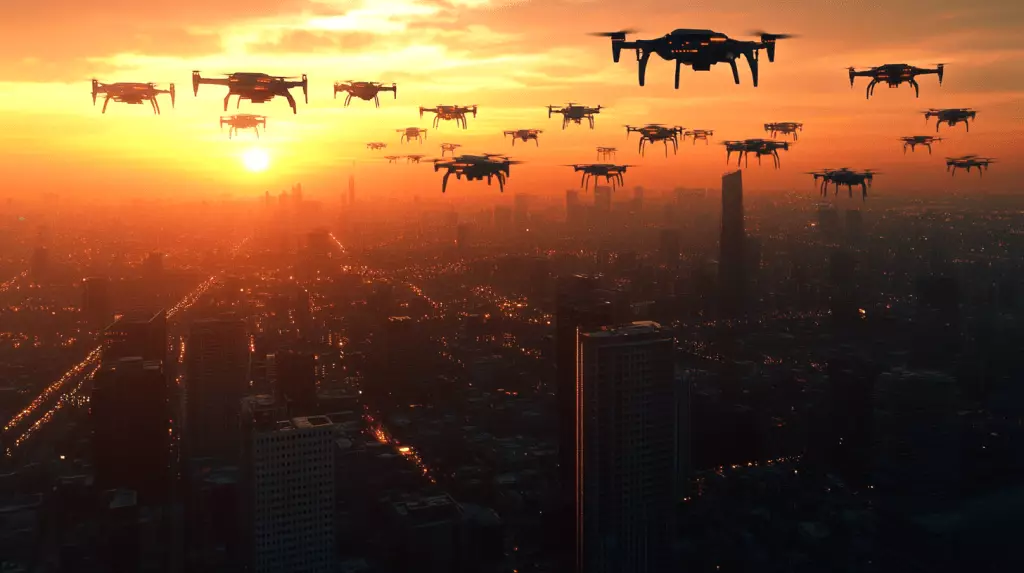In a surprising twist, OpenAI has introduced “Swarm,” an experimental framework that seeks to harmonize networks of AI agents. Despite its status as a non-commercial product, the release has spurred vigorous discussions among industry experts, stakeholders, and ethicists regarding the future of automation in enterprises. This framework serves as a foundation for developers eager to explore the potential of interconnected AI systems that can autonomously communicate and collaborate on multifaceted challenges.
The concept of multi-agent systems is not novel; however, Swarm simplifies their development for a broader spectrum of developers. Historically, these systems have functioned through a complex interplay of independent agents that tackle specific problems, each with designated functionalities. Swarm elevates these capabilities by providing a structured platform, enabling developers to create cohesive units of specialized AI agents tailored for various business needs. Imagine a corporate ecosystem where specialized agents operate across different arenas like marketing, sales, and customer service, working harmoniously with minimal human oversight. The implications for enhancing operational efficiencies are seismic, potentially transforming how businesses conduct their affairs.
Implications for Business and Workforce Dynamics
The advent of frameworks like Swarm bears significant ramifications for the workplace. As AI agents assume roles traditionally held by human employees, pivotal questions arise regarding the future of work and human agency in an increasingly automated setting. While it is undeniable that such advancements promise enhanced productivity, they also evoke concerns regarding job security and the gradual erasure of certain job functions. The dichotomy of job displacement versus the emergence of new roles comes into sharp focus. Companies leveraging Swarm-inspired technologies may find themselves at a crossroads: adjusting to newfound efficiencies while ensuring the workforce is prepared for the accompanying shifts.
Ethical Considerations of Autonomous Networks
The rise of sophisticated AI systems like Swarm raises essential ethical discussions. As experts delve deeper into multi-agent frameworks, the risk of misuse or malfunction looms large. Ensuring that these networks operate without biases, injustices, or systemic failures is critical for society at large. The potential for unintended consequences from algorithmic decisions, especially in matters significantly affecting people’s lives, necessitates a robust framework for accountability. Here, the responsibility lies equally with developers and organizations to acknowledge and address the ethical concerns surrounding AI deployment in everyday business scenarios.
Exploring Early Implementations
In the wake of Swarm’s introduction, some innovative developers have already begun to explore its applications. A notable initiative, the “OpenAI Agent Swarm Project: Hierarchical Autonomous Agent Swarms (HOS),” showcases a possible implementation where AI agents are assigned tailored responsibilities within a hierarchical structure. While these explorations are promising, they also underscore the complexities that arise when designing governance frameworks for AI. Ensuring that such autonomous systems can operate efficiently and ethically requires thoughtful deliberation about their architectures, objectives, and potential impacts.
OpenAI remains transparent about the limitations of Swarm. The company has emphasized that it is an experimental “cookbook” rather than a fully-fledged product, designed primarily for building simple agents. According to Shyamal Anadkat, a researcher at OpenAI, expectations should be tempered; Swarm is far from being production-ready and is not intended for ongoing maintenance. This clarification prompts developers to pursue innovation cautiously, reminding them that while the potential of multi-agent systems is vast, they remain in the nascent stages of development.
Despite its experimental status, Swarm illuminates the path toward a future where multi-agent AI systems are not just a theoretical concept but a practical framework for application. Forward-thinking enterprises can benefit by beginning to engage with these ideas, apprehending both opportunities and challenges that they may present. As the technology evolves, those organizations that proactively adapt will likely find themselves ahead of the competitive curve.
The Call for Interdisciplinary Collaboration
Swarm invites an essential dialogue among diverse stakeholders—technologists, ethicists, and business leaders alike—to consider the broader societal ramifications of AI. The complexity of advanced AI demands comprehensive collaboration to ensure alignment with shared human values. As societies grapple with these innovations, it is evident that the conversation surrounding AI will increasingly center on multi-agent systems and their societal implications.
As the tech landscape eagerly observes the progression stemming from OpenAI’s Swarm, it holds a mirror to the broader questions about the evolution of work, ethical responsibility, and the future of automation. The introduction of Swarm serves as a notable inflection point in the journey toward a future interwoven with autonomous AI networks, poised to challenge existing paradigms while promising a transformative impact across industries.

